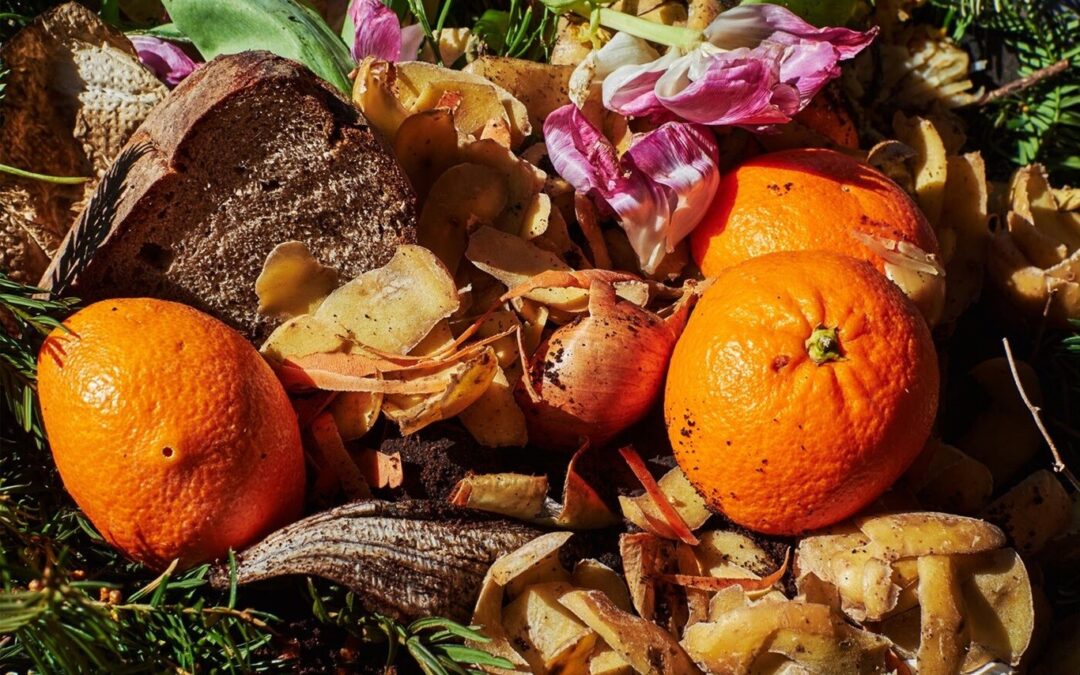Hear the author read this article (10:50)
Every day, seven days a week throughout the year, trucks from the Food Stash Foundation pick up surplus food from grocery stores, restaurants and other businesses in Vancouver. The non-profit organization then redistributes the donated food to charities across the city.
“We try to support community-based food programs whether it’s serving homeless people, people with mental health struggles or people with disabilities. We work with a lot of low income housing units. We also have our own programs providing healthy food for folks who often can’t afford to access healthy food,” says Anna Gray,
Food Stash communications specialist.
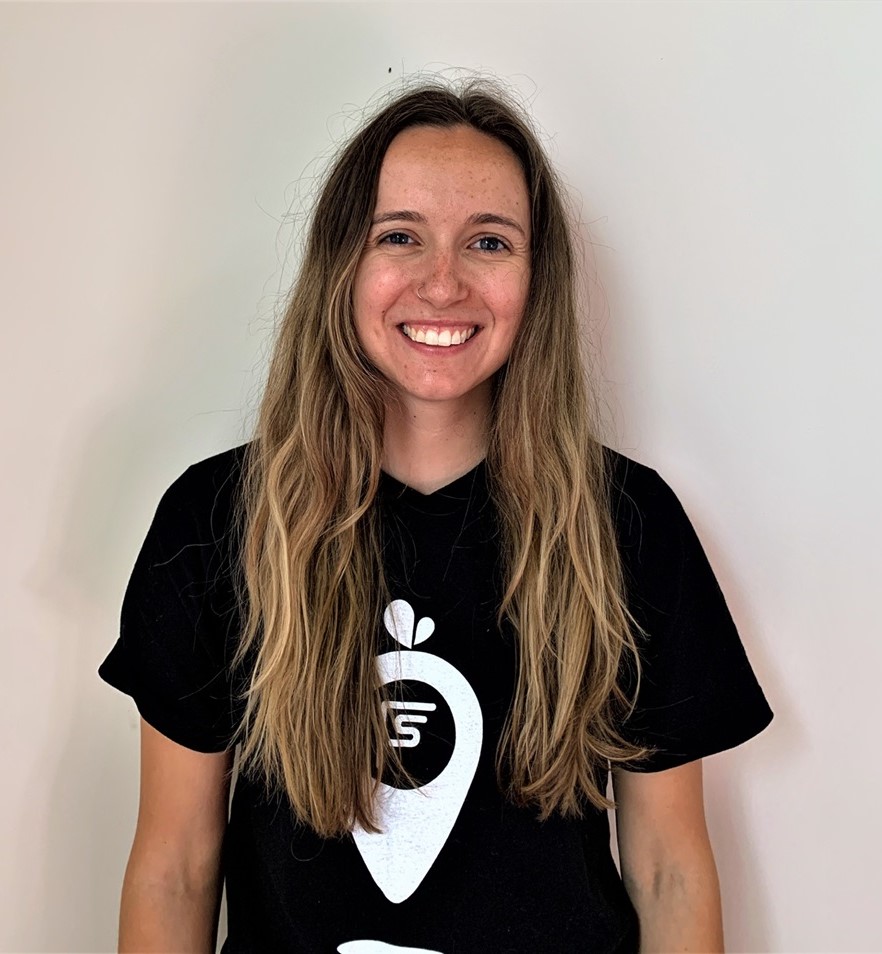
Anna Gray, Food Stash Foundation
Last year, the organization rescued over one million pounds of food including produce, meat, dairy and other products. Food Stash projects this year’s collection to be even higher, enough food to serve an estimated 11,000 people each week.
Art Bomke, a volunteer with Little Mountain Neighbourhood House, and Riley Park Community Gardens, describes the work of Food Stash as a model of efficiency in capturing food that would otherwise go to waste and repurposing it to help support food insecure people.
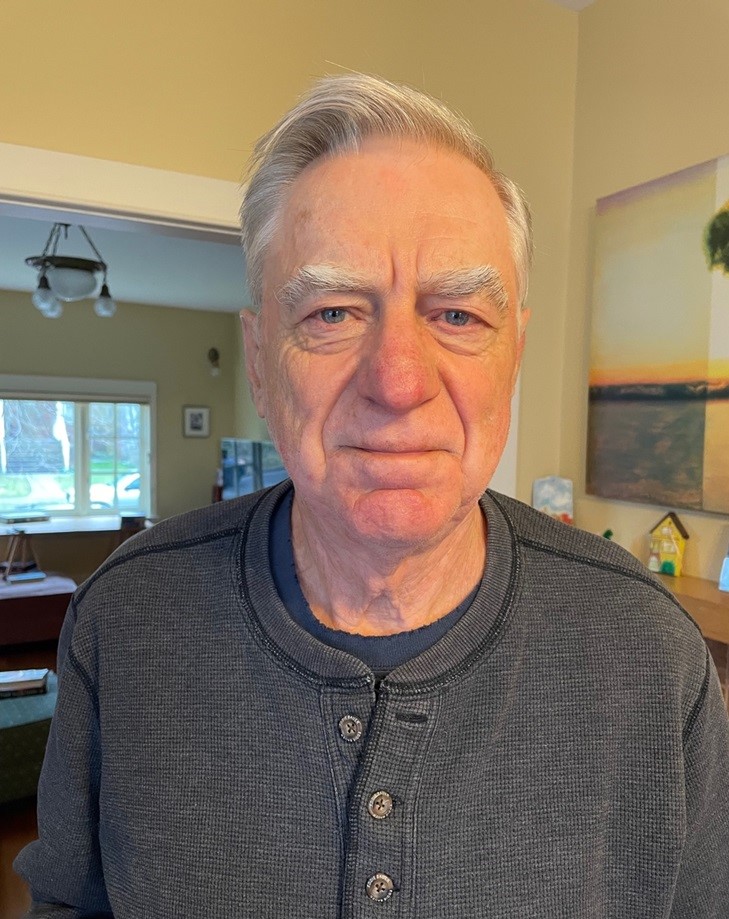
Art Bomke, Prof. emeritus, UBC and Riley Park Community Garden volunteer.
“To me Food Stash is the gold standard. They do it with very little government support. It points out a systemic problem in that food security is probably not looked after as well as it could be by levels of government where you have food banks and a necessity for organizations like Food Stash.”
For Food Stash, feeding the community is just part of its mission; the other goal is an important environmental measure to stop food waste.
“If this food ended up in the garbage or compost, no one wants that. If food waste was a country it would be the third largest emitter of greenhouse gases,” observes Anna Gray.
Food waste in landfills generates methane, a gas more potent than carbon dioxide and a major source of global warming. In BC, it’s estimated that organic waste contributes 40 percent of the waste that is dumped in landfills. According to city officials, there is sufficient capacity for all waste material at the Vancouver landfill until 2037. Metro Vancouver which is responsible for managing municipal solid waste for the region is planning ways to accelerate waste reduction and diversion.
Across Canada, 58 percent of food that is produced for consumption goes to waste. Even more striking is the amount of food waste generated by Canadian households according to the National Zero Waste Council. Its research concludes that 63 percent of food thrown away by Canadians could have been eaten.
“These are just staggering statistics. Food waste happens across the system. It also contributes to the lack of access for food when we are wasting food. We still have a long way to go in terms of addressing this issue,” says Tamarra Soma, an assistant professor at Simon Fraser University (SFU) and director of research at the school’s Food Systems Lab.
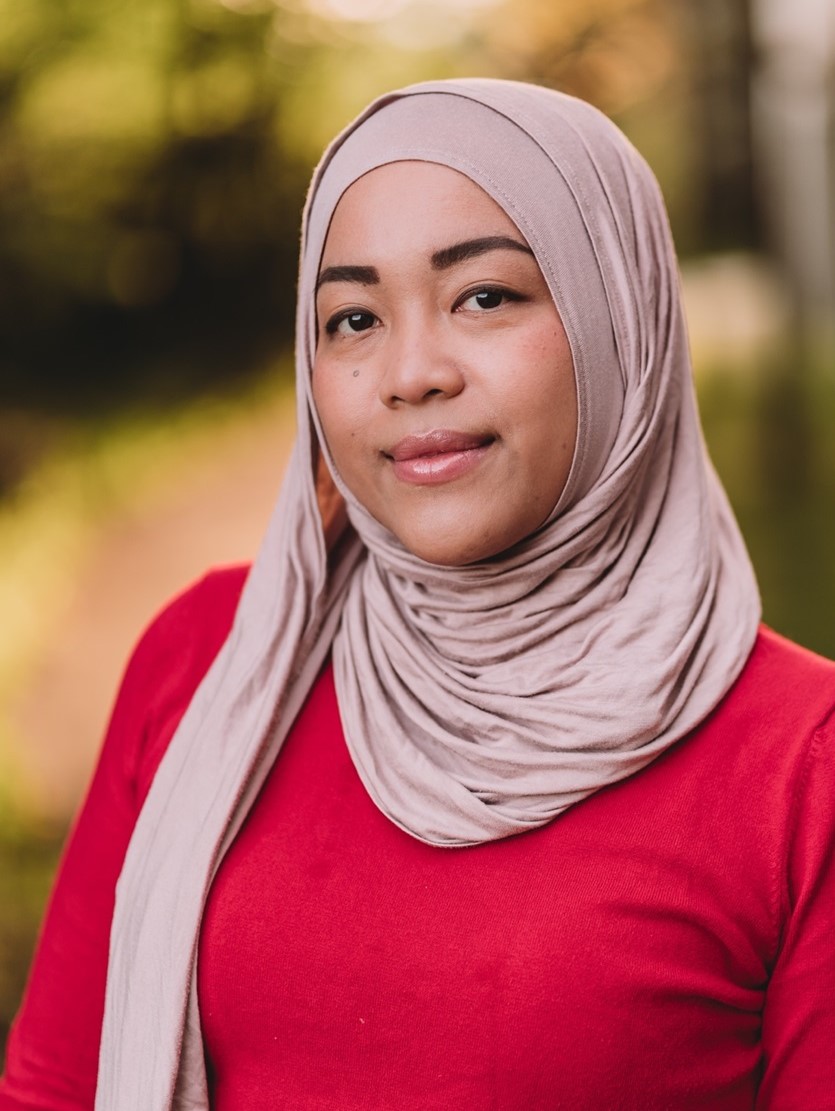
Tammara Soma, Simon Fraser University
Soma was a member of a delegation from SFU that attended a United Nations summit in Rome this summer on the state of the world’s food systems. Food waste was discussed at the summit.
“It’s a fixable problem that people need to get more on board with. The reality is that things are going downhill in many cases from food prices to growing hunger. The general sentiment is that we are nowhere near the sustainable development goal of zero hunger by 2030.”
Closer to home, SFU ranked fifth in the world amongst universities for its response on climate action, is changing its carbon practices. One way it is doing that is support for local food suppliers and businesses through the school’s procurement programs. Soma says there was a time when only 10 percent of food supply orders were local. Now, that has increased to 40 percent with a plan to reach 50 percent by next year.
“The local food economy is very important from a societal angle, from an ethics angle but also from an environmental angle because it shortens the food supply chains and also contributes positively to climate change.”
SFU is piloting programs on campus aimed at minimizing food waste and has introduced new indigenous food options. Soma believes it’s time to rethink how cities are designed.
“We need to create spaces so people can grow their own food. We need to protect more of the natural environment because clean water means healthy fish.”
In the Little Mountain/Riley Park area of Vancouver, a group of local residents is dedicated to the promotion and cultivation of green space through its community garden. While small in size, the Riley Park Community Garden serves many purposes – a habitat for pollinators, a gathering place for the community and a means to participate in truth and reconciliation.
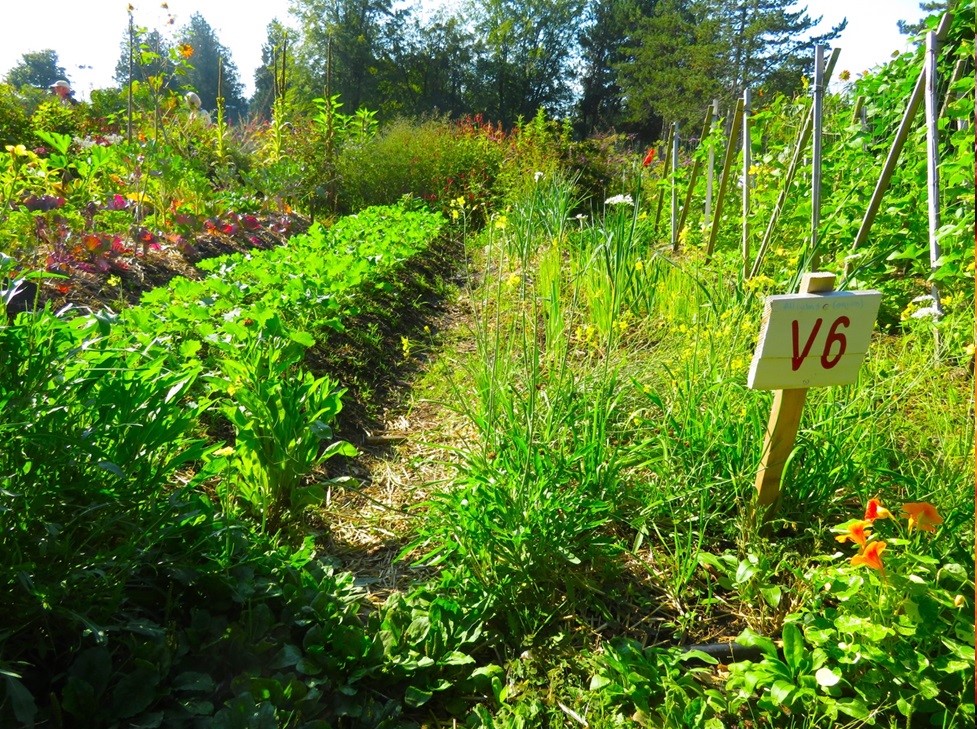
Riley Park Community Garden. (Photo by Bill Stovin)
One of the co-founders and a volunteer with the garden is Art Bomke. Bomke speaks passionately about the gardens in the neighbourhood.
“We wanted a community garden that was welcome for people to come in, look at what we were doing and to learn from it and also hopefully help people with their own gardening and plant questions. There is definitely a food component, to educate people.”
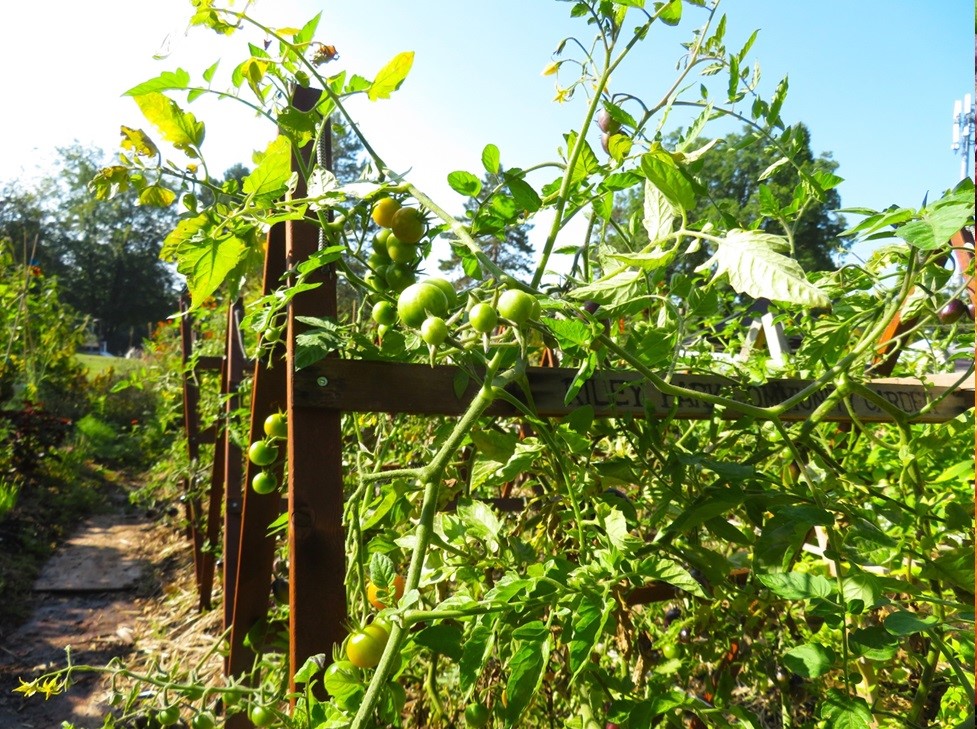
Riley Park Community Garden. (Photo by Bill Stovin)
Two thirds of the produce harvested in the gardens is shared by the volunteers with the rest being donated to the food distribution system in Vancouver.
That spirit of co-operation and shared experience flourishes in many communities across the province. Heather Pritchard retired last year after 35 years as an organic farmer in a co-operative farm operation in the township of Langley. She is also a co-founder of Foodlands Cooperative of BC.
Pritchard has been involved in slow food, a global, grassroots movement promoting local food cultures with a commitment to community and the environment.
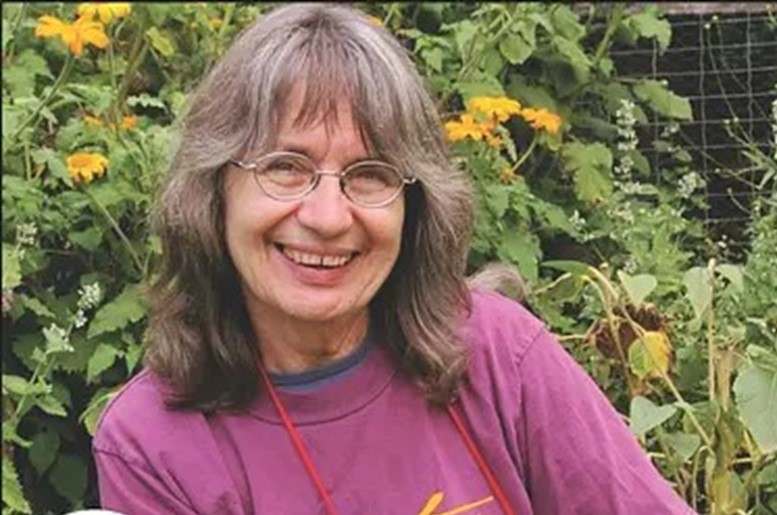
Heather Pritchard, retired organic farmer and co-founder of Foodlands Cooperative of BC.
“One of the big issues for slow food is food wastage globally. Slow food is involved in ways to reduce it. So, it’s just not local but the solutions are local.’
As an example, Pritchard explains that misshapen vegetables and fruit are perfectly healthy to eat, adding that consumers need to change their expectations as to when fresh food is available.
“We still don’t have awareness that part of food waste is to really use it in season, consume it in season. We take the surplus and preserve it and then we get used to it when it comes to the Fall to do things like root vegetables, the slaws and the canned goods. There’s no reason for waste.”
About three percent of BC is farm land. Pritchard believes it’s enough to grow the food we need, if farm land is not diverted for real estate exploitation.
“In order for people to change their mind about something, they need experience and that experience needs to be connected to the earth, to the land and to see that as a special relationship. You waste less if you know what goes into growing it.”
One person who is trying to impart a similar message is Syd Belzberg with Stable Harvest Farm. In 1980, the retired Vancouver businessman bought a farm in Langley to stable his race horses. Forty years later, he would place 65 acres into an agricultural land trust to produce food and, more importantly for Belzer, to serve as an education center for children and youth.
“The property has to remain what it is, a destination for schools, education, food security, a bird migratory centre. For someone who never planted a seed in his life, it’s been an eye-opener.”
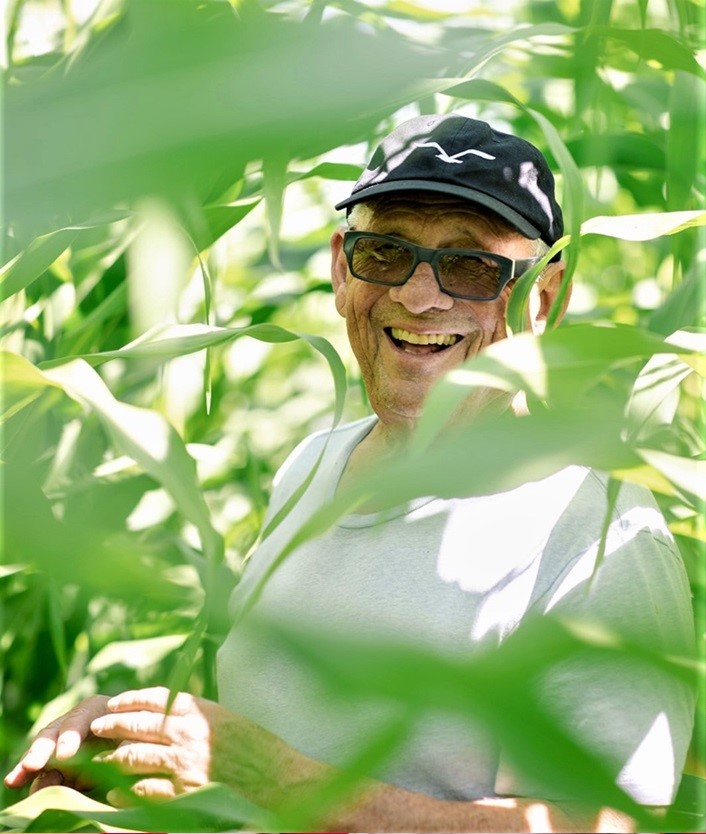
Syd Belzberg, owner and philanthropist, Stable Harvest Farm.
Stable Harvest Farm continues to work in partnership with BC Agriculture in the facilitation of education programs. Twelve stations are set up on the property so students can learn about various aspects of growing food from seeding to harvesting. In the first six months of the operation, more than 3,000 children visited the farm.
“The kids getting off the bus and getting their hands in the soil, and seeing carrots don’t come from Safeway, that to me is the best feeling in the world. The kids get a great education on farming, organics and the earth as well as the challenges that go through growing produce. A lot of teachers and parents who come along learn just as much as the kids do.”
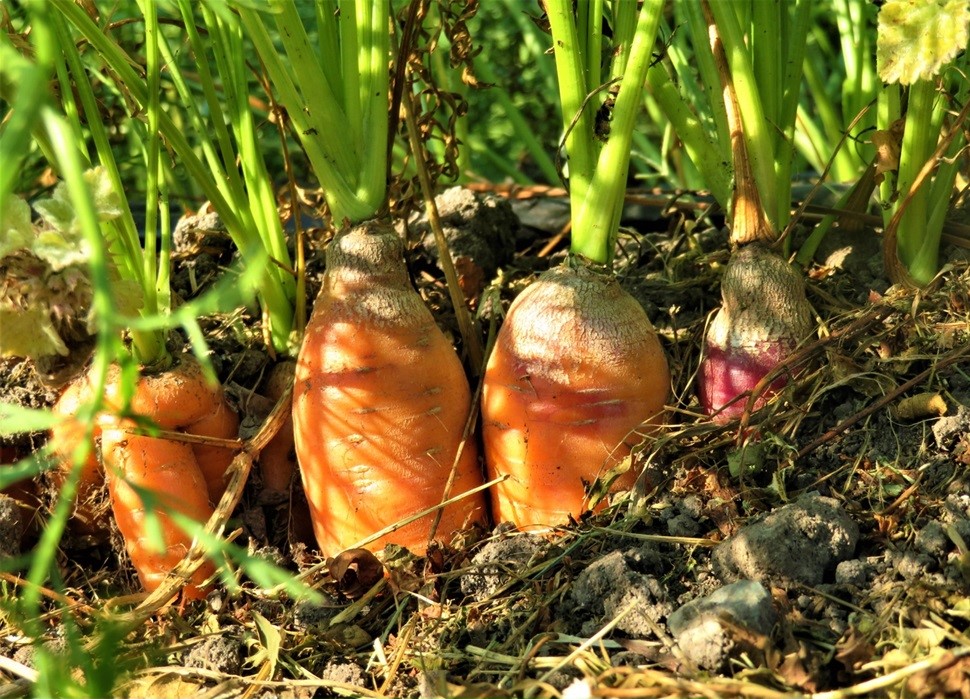
Photo by Bill Stovin
Belzberg funds the farm operation, a mix of staff and volunteers. This year, it will produce up to 100,000 pounds of food. Much of it will be donated to community groups including Food Stash foundation.
Anna Gray says her organization greatly appreciates the yearly donation from Stable Harvest Farm and is looking for more farm partners willing to support their dual mission of food security and the environment.
“If we are able to reduce food waste, we can significantly reduce our carbon footprint and also have a better understanding and appreciation for the hard work that goes into the food we are growing.”


